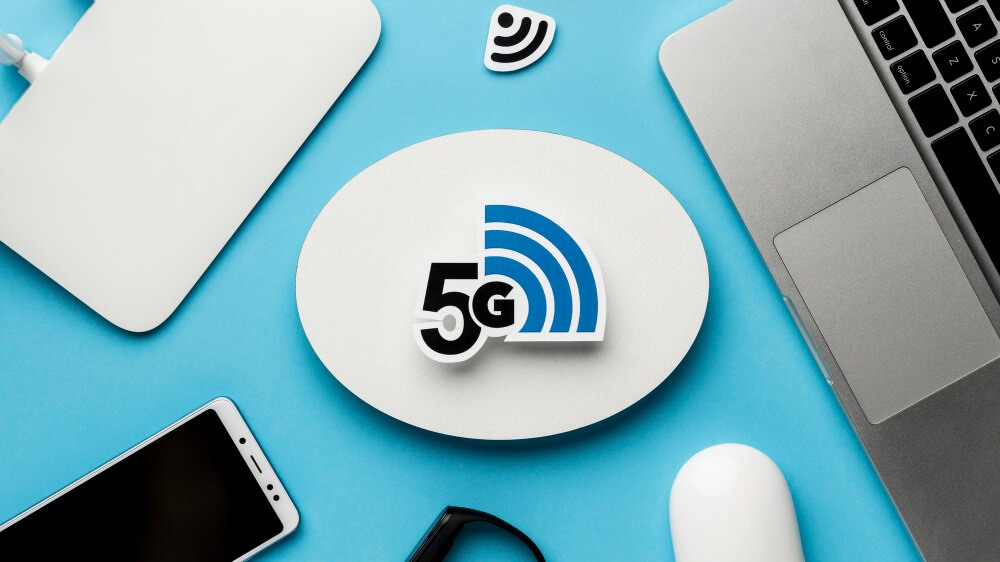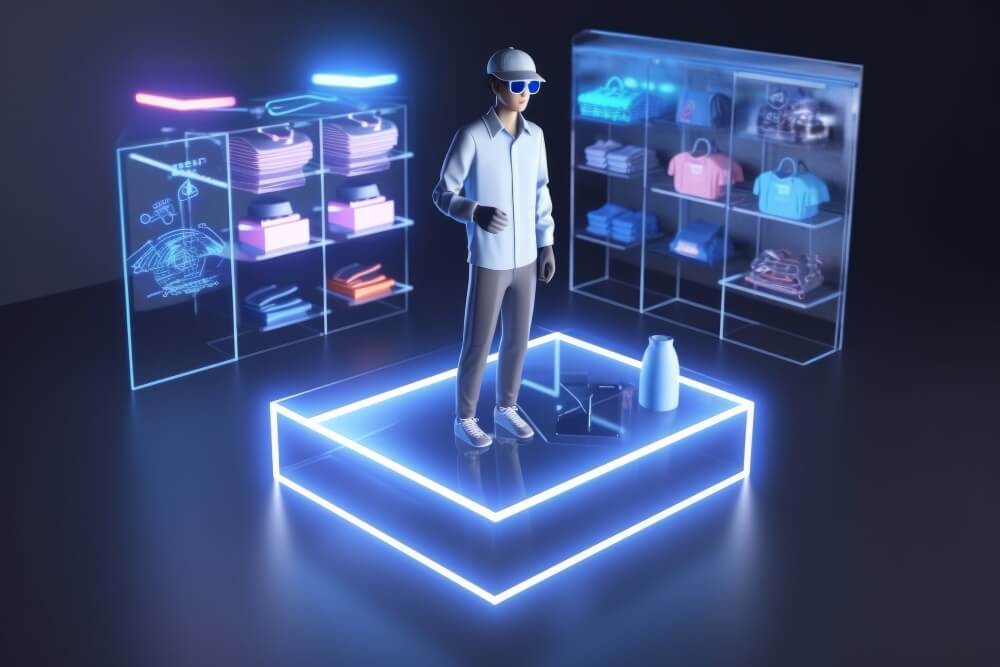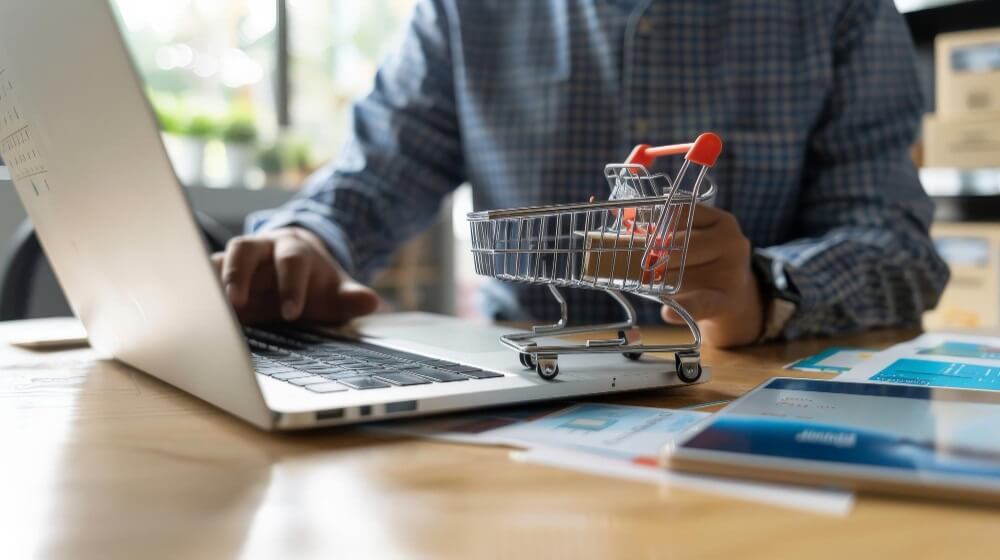Mobile commerce (mCommerce) has emerged as an undeniable force that has changed how customers and businesses interact across the marketplace ecosystem. mCommerce platforms have evolved with the increasing popularity of smartphones and mobile-first strategies, disrupting the traditional commerce market.
But the question is, what is the future of mobile commerce? What can we expect from the future? Well, read this guide to find the answers to all your questions linked to mCommerce.
Recent Growth of Mobile Commerce
Mobile commerce is a highly innovative marketplace environment. It allows consumers to buy goods and services easily using their mobile devices. But why is this so important?
Well, recently, there has been a surge in the number of mobile users. In fact, every person relies on mobile for every small task, and this is why mCommerce has become a dominant force in the online retail sector.
This shift enhances the shopping experience and increases accessibility for all users. In fact, as per Statista, mCommerce sales reached $2.2 trillion in 2023, which was 60% of the overall online sales. This is just the start and one can expect this number to rise even beyond these figures in the times to come.
But what is making this mCommerce so prevalent in every market scenario? Well, here are a few reasons that you must know:

Consumer Behavior Shift
Mobile usage has surged, with consumers increasingly favoring mobile apps over traditional web browsing for shopping. This shift in behavior has encouraged businesses to adopt mobile-first strategies to address growing demand.
Advancements in Mobile Payment Solutions
AI is taking mobile commerce to the next level by providing a better way of shopping. From specific items you may want to buy to promotional offers made for you and many more. AI assists every customer in one way or another, encouraging them to come back.
AI and Personalization
AI-driven technologies are enhancing mobile commerce by offering personalized shopping experiences. As per a Survey, organizations observed that around 65% of customers remain loyal to companies that leverage AI technology for delivering tailored experiences. From tailored product recommendations to customized promotions, AI increases customer satisfaction and fosters long-term engagement and loyalty.
5G Connectivity

5G technology isn’t just about speed; it’s changing the future of mobile commerce by providing a whole new experience where browsing, paying, and shopping becomes faster, easier, and more enjoyable. Higher speeds also mean that many activities, including selling and buying, are instant.
Reasons for Shift in Consumer Expectations
There is no doubt that the inclination of users towards mCommerce is quite high. But at the same time, it is important to understand that there are various reasons why this shift in consumer expectations is seen.
A Few Reasons to Know are:
- mCommerce offers better shopping and purchasing, enabling users to search for products and complete transactions, including secure payments, all from a single interface without switching devices.
- The ease of use and level of protection of financial data and other sensitive data are quite high in mCommerce. Mobile wallets, secure payment gateways, and encryption technologies ensure the security of these transactions.
- mCommerce platforms increasingly offer benefits such as convenience and confidence to users, which is in sync with the demand for efficient and user-friendly shopping experiences.
While this is true behind the mCommerce witnessing such tremendous growth, it is equally important to know the future trends.
The Future Trends of Mobile Commerce
Mobile commerce is on the edge of an incredible existence as there are several trends that are likely to shape the world of mobile commerce in the future:
Voice-Activated Shopping

The launch of voice-activated assistants like Siri, Alexa, and Google Assistant has paved the way for voice-activated shopping, which is expected to increase soon. This is because customers will actually be able to use their voices to search, order, and make payments, thereby making it easier for consumers to shop on mobile.
Mobile-First Payment Innovations
It is expected that future mobile payment solutions will go beyond just mobile wallets. Advanced possibilities such as biometric payments and blockchain for mobile transactions will enhance security as well as convenience in making mobile purchases.
AI-Powered Chatbots
With the advancement of technology, it is anticipated that the services offered by AI chatbots will be unique in such a way that the customers will be in a position to obtain support services, customized recommendations, and shopping integration. These components act to increase user interaction, particularly on mobile devices.
Augmented Reality (AR) Integration

Apart from being of assistance in eCommerce, AR technology will be important in mCommerce, where customers will be able to try on clothes virtually or view those items at home. Encouraging the implementation of Motion Graphics in eCommerce solutions effectively enhances the online shopping experience as well as drives conversion. This will improve the customer’s shopping activities and increase their confidence in the product, which will consequently reduce the return rate.
Sustainability and Ethical Commerce
Smartphone use in society is expanding, and many people are becoming increasingly cognizant of sustainability issues, which will lead mobile commerce hubs to work on sustainable strategies and sell green products. Through the use of mobile applications, consumers will be able to see the effect their purchasing decisions have on the environment, promoting smart spending habits.
Challenges Ahead for mCommerce in Marketplace Ecosystems
Going by the observed increase in the rate of advanced mobile commerce, there are, however, several bottlenecks to the future success of mCommerce in the marketplace ecosystems, which are:
Security and Privacy Concerns
With the increase in people embracing mobile payment systems, there tends to be an increase in cybercrime as well as data theft. mCommerce platforms need to look for ways to secure payment platforms and safeguard clients’ information.

Fragmented User Experience
It is likely that, for instance, a browser may be able to retrieve and open a website that is responsive but not hramba.com. Not all mobile devices have the exact specifications, and hence, the mCommerce solution provides varied experiences to consumers.
This is because businesses will have to ensure there is sufficient optimization of their mCommerce solutions to cover a range of gadgets, screen sizes, and OS to avoid losing customers who could have been converted into users.
High Competition and User Retention
All these processes give rise to new product options available to clients, hence causing a great extent of competition in the mobile commerce space and forcing mobile multi-vendor or marketplace businesses to morph with the times.
It is quite often difficult to keep users as their commitment is temporal and tends to be volatile. Consumer loyalty frequently changes, especially under competitive conditions and faster offers, discounts, or newer features by the opponent science.
Mobile Payment Infrastructure
Despite the increasing rate of mobile payments, it is apparent that not all regions are using these technologies to the same extent. Those emerging markets do have certain limitations, especially when it comes to mobile banking and payment solutions. This unavailability of access turns out to be a roadblock in the growth of mCommerce in some areas.
Regulatory Compliance

With the increase of dependence upon mCommerce, there come some regulatory hurdles that the government is trying to address with laws on data protection. Regulations such as GDPR and some other repeatedly changing data protection laws make it cost and career-intensive since there is a need for compliance with mobile platforms.
Conclusion
For mCommerce, the prospects following the concept of a marketplace ecosystem are rather encouraging and will be supported by improved technology and changing consumer behavior. With the advent of 5G and other improvements, mCommerce platforms will only get better with faster and easier-to-use, more targeted, and safer shopping experiences.
The platforms will also revolutionize the digital marketplace, enhancing the ease of transactions. Owing to the influence of conviction in efficacy, mCommerce is the dominant force, challenging other forms of commerce in the global market even many years ahead.